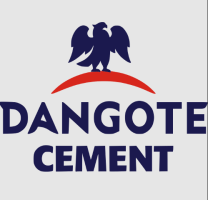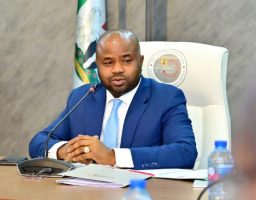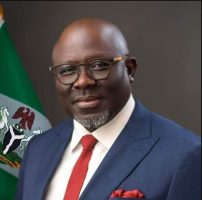LAGOS — Former Nigerian Bar Association (NBA) President and Senior Advocate of Nigeria, Mr. Paul Usoro, has come under intense scrutiny following his role in a controversial legal battle surrounding the enforcement of a ₦19.4 billion arbitration award in favour of Hanson Dredging & Marine Services Ltd.
The high-stakes dispute has triggered a storm of allegations ranging from forum shopping, multiple suit filings, and petitions against sitting judges—all allegedly orchestrated by Usoro’s law firm, Paul Usoro & Co., in defence of its client, SANEF Creatives Ltd., a company owned by the Bankers’ Committee of the Central Bank of Nigeria, CBN.
The crisis began after a contract between Hanson Dredging and SANEF for dredging and reclamation work at the National Theatre, Lagos, broke down. Signed in November 2021, the project was later terminated by SANEF in May 2022, citing expiration of the 36-week timeline, despite delays reportedly caused by the COVID-19 pandemic and bureaucratic red tape.
Aggrieved, Hanson Dredging, through its lead counsel, Dr. Charles Mekwunye, SAN, initiated arbitration proceedings. In a final award delivered on December 30, 2024, Sole Arbitrator Ayo Fanimokun ruled in favour of Hanson, holding that SANEF unlawfully terminated the contract and awarding the company ₦19.4 billion in damages.
Hanson moved to enforce the arbitral award through Suit No. LD/6707GCM/2023, which was transferred to Justice O. A. Sunmonu of the Lagos High Court by the Chief Judge. However, events took a dramatic turn when SANEF’s legal team, led by Usoro, filed two additional suits—Suit Nos. LD/8056GCM/2024 and LD/9221GCM/2025—on the same subject matter, sparking concerns over multiplicity of actions.
More controversially, Usoro petitioned the Chief Judge of Lagos State, Justice Kazeem Alogba, seeking to reassign all three suits to Justice Olukolu, the judge originally handling the enforcement case before it was transferred. In a petition dated May 26, 2025, Usoro accused Justice Sunmonu of judicial bias, “unrestrained ambition,” and procedural overreach, calling for his exclusion from the matter.
The petition sparked outrage from Hanson’s legal team. Dr. Mekwunye described Usoro’s actions as “scandalous, misleading, and aimed at intimidating the judiciary.” He argued that the petition was an attempt to arm-twist the bench and dictate which judge should hear the case.
“No litigant, no matter how highly placed, has the right to handpick a judge,” Mekwunye said in a strongly worded response. “Judicial assignment lies solely with the Chief Judge. To attempt to manipulate that process is an attack on the institution of justice itself.”
Mekwunye accused Usoro of employing delay tactics through the filing of multiple suits and petitions, all aimed at frustrating the enforcement of the valid arbitral award. He said the alleged abuse of court process was calculated to stall justice while presenting the appearance of due legal challenge.
He further referenced appellate authorities, including Emperion v. Aflon and Ngere v. Okuruket, to buttress his position that consolidation of suits cannot be forced and must be based on mutual agreement. “What is playing out here is not an innocent legal strategy but a targeted forum shopping campaign,” he said.
The April 17, 2025 court session before Justice Sunmonu, initially slated for hearing Hanson’s enforcement motion and SANEF’s preliminary objection, was stalled when Usoro announced the filing of a new suit to set aside the award. He then requested an adjournment pending the Chief Judge’s response to his petitions.
Mekwunye opposed the request, insisting that a mere letter to the Chief Judge does not amount to a stay of proceedings. “We must not allow the judicial process to be derailed by the filing of frivolous petitions or the injection of sensational accusations like ‘judicial tyranny’,” he stated.
He also took issue with the language used in Usoro’s petition, which included phrases such as “naked ambition” and “judicial tyranny,” describing them as “demeaning and unbecoming of a Senior Advocate of Nigeria.”
Mekwunye accused Usoro of attempting to browbeat the judiciary through public petitions and courtroom theatrics. “This is not just about Hanson or SANEF. It is about preserving the independence of our judiciary. If a party is allowed to nominate their preferred judge in an ongoing matter, then the very foundation of justice is at risk,” he added.
In his letter to the Chief Judge, Mekwunye urged the judiciary not to yield to pressure. “We therefore appeal to His Lordship not to lend the weight of your exalted office to a law firm which is behaving as a law unto itself—filing several suits in respect of the same matter, nominating a judge, and launching repeated attacks on judges and the judiciary under your watch,” he wrote.
With accusations and counter-accusations flying, the legal battle has now transcended mere contract enforcement and evolved into a test of judicial independence, professional ethics, and the boundaries of legal advocacy.
As the Chief Judge considers the competing petitions, all eyes remain fixed on what could become one of the most defining legal showdowns in recent Nigerian commercial litigation history.






